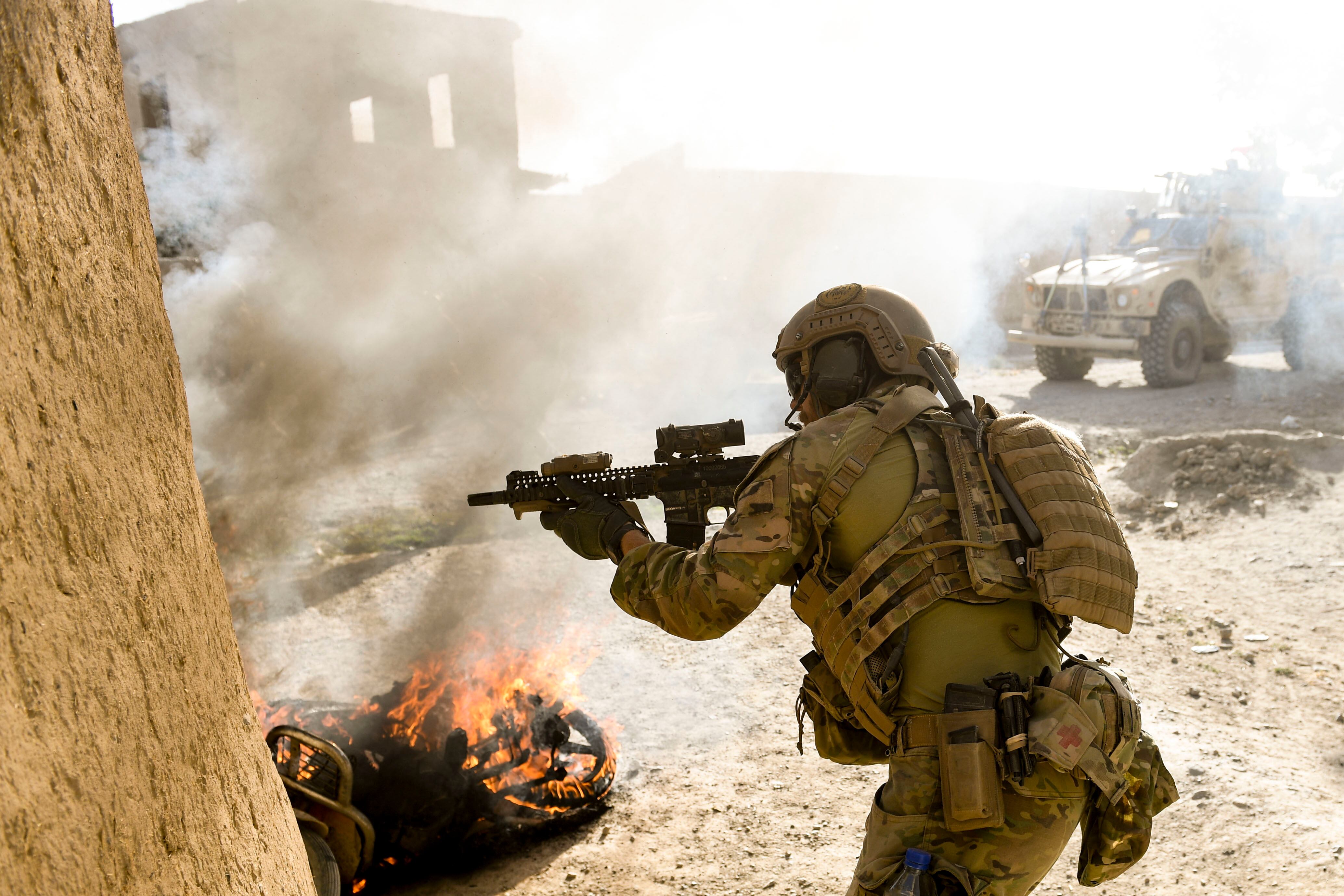The commander of the United States Special Operations Command said Tuesday that American commandos will continue to engage violent extremists for the “long haul."
Army Gen. Richard D. Clarke, the commander of SOCOM, said Tuesday during a virtual running of the Special Operations Forces Industry Conference, that countering violent extremist groups was a generational issue and would remain the number one priority for U.S. special operators.
Clarke’s comments comes as national security experts and members of Congress have questioned SOCOM’s role in addressing near-peer adversaries like Russia and China.
For decades SOCOM has provided troops trained and primed to operate against terrorist and extremists organizations often operating out of more permissive environments. But the DoD is amid a massive shift to counter rising adversaries like Russia and China.
While Clarke said SOF would continue to hunt down extremists groups moving into the future, he told audience members streaming SOFIC that the fight to counter terror groups is not mutually exclusive from the Defense Department’s pivot to great power competition.
Highlighting a recent trip to the Indo-Pacifc region, Clarke explained that allies, partnerships and maintaining alliances will be an integral part to addressing near-peers in the future.
Special operations forces are uniquely placed to fill that role, serving in a number of host nation countries helping train partner forces to counter violent extremist groups.
In the Philippines, an important potential buffer to China’s ambitions in the region, American commandos “provided casualty triage and evacuation assistance” on three occasions supporting Phillipine forces during the stretch from Jan 1 to March 31, according to a recent inspector general report.
The IG report detailed that U.S. special operators assisted five Philippine soldiers wounded in the three separate occurrences in southern and central Mindanao when Philippine assets were unavailable.
American commandos are also partnering with Philippine troops “to conduct a week-long combat casualty care training with the goal of building the independent casualty evacuation capabilities of the Philippine forces,” the IG report reads.
Philippine forces are battling a number of terror and militant groups in the country to include ISIS. The IG report noted there was an estimated 300 to 500 ISIS-linked fighters in the Philippines.
“Great power competition is about influence” and American special operators have a “unique role” to play in this through presence, partnerships and training, Clarke explained. Clarke also said the information space was important.
Jordan’s King Abdullah II also made an appearance during the virtual SOFIC session and told viewers that ISIS was trying to exploit COVID-19 by increasing attacks in Iraq and “threatening to undo years of effort.”
Shawn Snow is the senior reporter for Marine Corps Times and a Marine Corps veteran.




